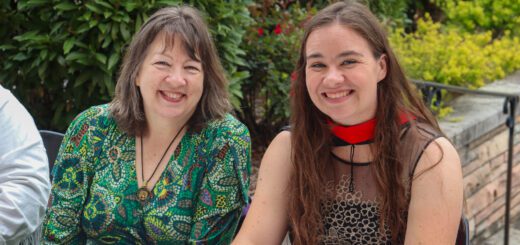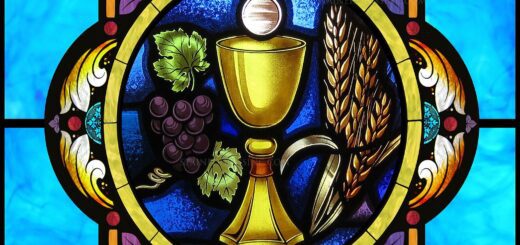Be A History Maker
“Be a History Maker” – February 18th, 2024
If Taylor Swift or Morgan Freeman came to Atlanta, what kind of welcome would you expect them to receive? If you applied for a construction job at the new skyscraper going up on West Peachtree, what kind of qualifications would they expect you to have? If you lost your social security card and a replacement was sent in the mail, what kind of arrangements would you expect to be made? We have a pretty good idea of the importance of each of these situations, whenever something important needs to happen, we would probably expect, or at least hope, for superlatives like “greatest,” “best,” or “most” to be part of the package! We would expect or hope for the greatest hospitality, the best qualified workers, and the most secure and timely delivery. We give our nod of approval when others make these kinds of reasonable and responsible choices, too.
The kingdom of God is sometimes dubbed “the upside-down kingdom” because God’s ways are often quite different to what we might expect. Jesus proclaimed and demonstrated the kingdom of God in ways that nobody expected. Today we’re looking at our next Vineyard Value, “Be a history maker” by hearing six stories about unlikely and ordinary people who changed the course of history. Listen for today’s date, February 18th. I chose these stories deliberately to highlight that on any given day, God speaks and acts through unlikely and ordinary people, as he has always done. God isn’t looking for the greatest, best, or most in anyone. Throughout scripture and in church history, it seems that God purposely seeks out the most unlikely and ordinary people through whom to speak and act. God seems to take great delight in turning deserts into oases, ashes into bouquets, mourning into joy, despair into praise. If you or I could have eavesdropped on what went on behind the scenes in each of these future history makers, we couldn’t have imagined what was about to unfold.
Elizabeth
Biblical Elizabeth is mentioned in only a single chapter of the Bible. By the time the events of Luke chapter 1 transpired, no one around Elizabeth would have expected God to speak or act through her. Being elderly and childless in her culture meant that she was also marginalized, misunderstood, labeled, and judged. It was widely taught and believed that childlessness was an indicator of God’s removal of blessing and therefore a confirmation of being cursed. Even if they’d known that an angel of the Lord had visited Elizabeth and her husband and promised them a child, even if they’d know that this child Elizabeth would bear would be the forerunner of the Messiah, no one would have expected any kind of blessing to flow from a cursed person like Elizabeth.
Luke 1:39-44 (NRSV) – “At that time Mary got ready and hurried to a town in the hill country of Judea, where she entered Zechariah’s home and greeted Elizabeth. When Elizabeth heard Mary’s greeting, the baby leaped in her womb, and Elizabeth was filled with the Holy Spirit. In a loud voice she exclaimed: ‘Blessed are you among women, and blessed is the child you will bear! But why am I so favored, that the mother of my Lord should come to me? As soon as the sound of your greeting reached my ears, the baby in my womb leaped for joy.’”
Talk about a total turn-around! In God’s upside-down kingdom, the Spirit of God empowered and directed now-pregnant Elizabeth to speak prophetically to Mary. Maybe the baby in Elizabeth’s womb, John, in his calling as the one who was to go before Messiah, gave his first prophetic proclamation – wordless – by leaping in Elizabeth’s womb! The text goes on to say that Elizabeth was filled with the Holy Spirit and then, in a loud voice, proclaimed the identity of the blessed Mary’s blessed baby as “my Lord” – my kýrios – my long-awaited Messiah. God chose to speak and act through Elizabeth to confirm for Mary what God was doing in her.
May we be history makers who, like Elizabeth, speak prophetically and bless loudly, by the power of the Holy Spirit.
Flavian of Constantinople
Fast forward about 500 years. Little is known of Flavian’s life except that he had served in the Church of Constantinople as an elder, an officer, and a bishop. He was also known for the holiness of his life. As bishop, he inherited a theological controversy about the relationship between deity and humanity in the person of Jesus Christ. One thing we notice in reading church history is that theological controversies are often entangled with politics and power. A state official decided that Flavian should bribe the emperor. Exodus 23:8 (NRSV) tells us two sad realities: “a bribe makes you ignore something that you clearly see … a bribe makes even a righteous person twist the truth.”
But Flavian stood for what was right and refused to participate in any kind of corruption. This angered the official, who took revenge on Flavian by drumming up false charges about his doctrines at the Second Council of Ephesus in 449. At this council, later dubbed the “Robber Council,” a mob of monks condemned and severely beat Flavian. He died of his injuries a few days later. Two years later, at the Fourth Council of Ephesus, he was cleared of all blame. Now Flavian is celebrated as a saint on February 18th of each year.
May we be history makers who, like Flavian of Constantinople, stand for what is right and refuse to participate in any kind of corruption.
Francesco Redi
Just over a thousand years later, Francesco Redi was born, on February 18th, 1626. Redi was schooled by the Jesuits, the religious order founded by Ignatius of Loyola, which is known for its emphasis on education and missions and whose motto is Ad Maiorem Dei Gloriam (“For the greater glory of God”).
Philippians 4:8 urges us to devote ourselves to “whatever is true, whatever is honorable, whatever is just, whatever is pure, whatever is pleasing, whatever is commendable, if there is any excellence and if there is anything worthy of praise, think about these things.”
Redi was a serious scholar who devoted himself to following the path of truth. Redi challenged the belief that snake venom was poisonous when swallowed, by demonstrating that the venom is produced from the fang and dangerous only when it enters the bloodstream. His work resulted in him being known as the “founder of experimental biology.” Redi also challenged the theory of spontaneous generation, the belief that living creatures could arise from nonliving matter, by demonstrating that maggots come from eggs of flies. His work resulted in him becoming known as the “father of modern parasitology.” Redi’s name is honored today through the prestigious annual Redi Award, given by the International Society on Toxinology, recognizing advancements in the field of venoms, poisons, and toxins.
Redi also cultivated his writing skills, a collection of his poems is considered among the finest works of 17th-century Italian poetry.
Gods my life, what glorious claret!
Blessed be the ground that bare it!
‘T is Avignon. Don’t say a flask of it;
Into my soul I pour a cask of it!
May we be history makers who, like Francesco Redi, are willing to challenge wrongly held beliefs and to work hard to demonstrate what is true. And write some beautiful poetry along the way!
Alessandro Volta (1745-1827)
About 120 years later, Alessandro Volta was born, on February 18th, 1745. Even as a child he was known for being unusually teachable.
When Old Testament King David was transferring the throne to his son, he offered this key piece of advice: “Learn to know the God of your ancestors intimately. Worship and serve him with your whole heart and a willing mind” (1 Chronicles 28:9a, NLT).
Volta became a man of faith and science. He was described as both a devoted follower of Jesus and one with “an unusual lucidity of mind and large erudition.” Although some have argued that faith and science are inherently at odds and entirely separate, Volta showed the harmony of God’s works and words in the universe through his own work and words. Volta, a physicist and a chemist, is known as a pioneer of electricity and power, the inventor of the electric battery, and the discoverer of methane. Volta debunked the prevalent theory that electricity was generated solely by living beings and proved that electricity could be generated chemically. Volta’s work led to the development of the field of electrochemistry. Volta also discovered the proportional relationship between electric potential and charge, the international unit “the volt” named in his honor.
Volta was also faithful in participating in worship services, receiving the sacraments, caring for the sick, and regularly teaching children in the fundamentals of the faith. Volta wrote that “modern discovery, the laws which we have brought to light, the paths which we have opened, ought not to excite any prejudice against the older truth, nor ought it presume to obstruct or draw men away from the one way, trodden by so many feet.”
In response to a dying man who claimed that “religion was only for the vulgar and the rabble, and that men of science … no longer concerned themselves with it,” Volta wrote a declaration of faith that reveal his commitment to cultivating a whole heart and a willing mind: “I studied attentively the grounds and basis of religion, the works of apologists and assailants, the reasons for and against, and I can say that the result of such study is … that every spirit unperverted by sin and passion, every naturally noble spirit must love and accept it.”
May we be history makers, like Alessandro Volta, who cultivate a whole heart and a willing mind, as we follow Jesus and demonstrate the harmony of God’s works and words in the universe through our own works and words.
Emanuel Granberg
Around the same time, Emanuel Granberg was born, on February 18th, 1754. We know little about his life, except that, as the child of a minister, he spent a lot of time at church.
Galatians 6:4-5 (The Message) gives us this excellent advice: “Make a careful exploration of who you are and the work you have been given, and then sink yourself into that. Don’t be impressed with yourself. Don’t compare yourself with others. Each of you must take responsibility for doing the creative best you can with your own life.”
Granberg did his creative best with his life by becoming an accomplished painter who primarily worked on murals and paintings for churches. Remarkably, several of Granberg’s paintings have been preserved on the walls and banister of the oldest wooden church in Finland, Muhos Church. If we could visit it, we would be inspired in our worship by “Jesus on the Road to Emmaus,” “Jesus in the Home of Martha and Mary,” “Peter Denies Jesus,” and “The Good Shepherd.”
May we be history makers, like Emanuel Granberg, who do our creative best with our lives, for the greater glory of God!
Lucy Stanton
Our final story for today is about Lucy Stanton, who was born in Ohio in 1831 and passed away on February 18th, 1910. Stanton suffered the evils of racism and segregation firsthand as a child because state laws forbade black children from attending public school. In spite of that huge barrier, she soon became the first African-American woman to complete a four-year course of a study at a college or university.
Proverbs 31:8-9 (NRSV) – “Speak out for those who cannot speak, for the rights of all the destitute. Speak out, judge righteously, defend the rights of the poor and needy.”
Stanton began her career as a principal, librarian, and editor, also teaching in the newly established public schools for black children. After being abandoned by her husband, she challenged the stigma of single motherhood by working as a seamstress to provide for her family. Throughout her life she devoted her attention to the abolitionist cause. She wrote persuasive pamphlets and delivered passionate speeches. She published one of the earliest pieces of fiction by a black female author, a story about a brother and sister’s escape from slavery. She worked with several organizations and church denominations, to support the rights of women and African-Americans. She taught newly freed slaves in both Georgia and Mississippi. She established a safe refuge in Los Angeles for the guidance and development of hundreds of young African-American women who migrated to the city.
In 1850 the appalling Fugitive Slave Act was passed by U.S. Congress, which required that all escaped slaves be returned to their owners, making the federal government responsible to find, return, and try them. Just two weeks prior, Stanton gave the commencement address at her own graduation in which she urged the audience to put themselves in the place of the enslaved, to join the abolitionist cause, and to ultimately end slavery in the United States. Even though her speech was immensely well-received and reprinted, the good fruit that resulted from Stanton’s activism would not come during her lifetime. May her words urge us to fight the injustices of our day with perseverance and hope:
“Since … the freedom of the slave and the gaining of our rights, social and political, are inseparably connected, let all the friends of humanity plead for those who may not plead their own cause. Reformers, ye who have labored long to convince man that happiness is found alone in doing good to others, that humanity is a unit, that he who injures one individual wrongs the race;—that to love one’s neighbor as one’s self is the sum of human virtue … will you not raise your voice in behalf of these stricken ones?”
May we be history makers, like Lucy Stanton, who love all people as friends of humanity and who raise our voices on behalf of those who cannot plead their own cause.
We have much to learn from these six unlikely and ordinary individuals. May we be history makers who:
- like Elizabeth, speak prophetically and bless loudly, by the power of the Holy Spirit.
- like Flavian of Constantinople, stand for what is right and refuse to participate in any kind of corruption.
- like Francisco Redi, are willing to challenge wrongly held beliefs and to work hard to demonstrate what is true.
- like Alessandro Volta, who cultivate a whole heart and a willing mind, as we follow Jesus and demonstrate the harmony of God’s works and words in the universe through our own works and words.
- like Emanuel Granberg, who do our creative best with our lives, for the greater glory of God!
- like Lucy Stanton, who love all people as friends of humanity and who raise our voices on behalf of those who cannot plead their own cause.
God is calling you and me to be history makers today. No matter who you are or what hand you’ve been dealt, God wants to speak and act through you. No matter what you’ve believed about yourself, no matter what others have expected from you, God wants to speak and act through you. God chooses and calls the most unlikely and ordinary people (that’s you and me) to follow Jesus and become history makers.
1 Corinthians 10:31 (NRSV) – “Whether you eat or drink, or whatever you do, do everything for the glory of God.”
We become history makers when we show up where we are and when we are, here and now. We become history makers when we cultivate our gifts, skills, hearts, and minds. We become history makers when we do small acts with great love. And we do all these things by the power of the Holy Spirit. May God empower and direct us, as unlikely and ordinary individuals in a world filled with other unlikely and ordinary people, to be history makers in this as we proclaim and demonstrate the good news of Jesus in this unstoppable, upside-down kingdom of God.
Let’s go! Come, Holy Spirit!




